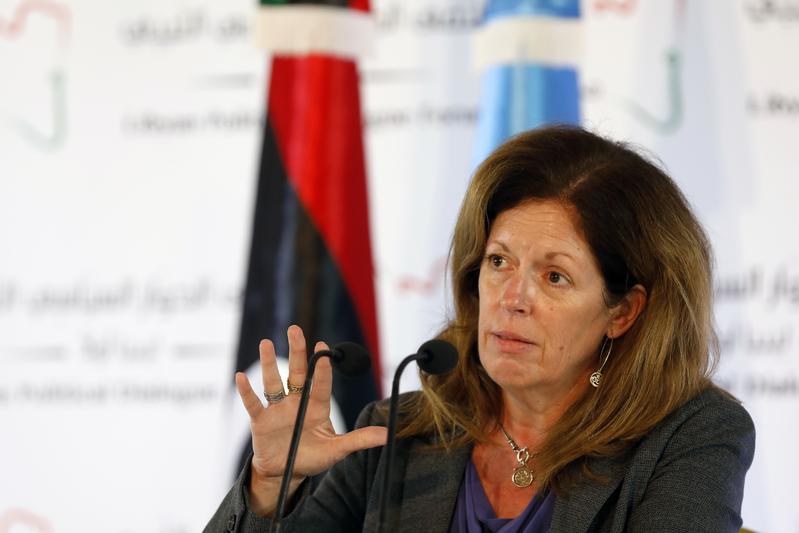 Stephanie Williams, Acting Special Representative of the Secretary-General and Head of the United Nations Support Mission, speaks during a news conference in Tunis, Tunisia, Nov 15, 2020. (WALID HADDAD / AP)
Stephanie Williams, Acting Special Representative of the Secretary-General and Head of the United Nations Support Mission, speaks during a news conference in Tunis, Tunisia, Nov 15, 2020. (WALID HADDAD / AP)
TUNIS - Talks on Libya’s future adjourned on Sunday without naming a new government to oversee a transition to possible elections next year, and acting UN envoy Stephanie Williams said there was a lot of work still to do.
The talks come as part of a wider peacemaking process along with a military ceasefire agreed between the two main sides in the war: the internationally recognised Government of National Accord (GNA) and Khalifa Haftar’s Libyan National Army (LNA)
The 75 participants chosen by the United Nations to meet over the past week in Tunis had already agreed to hold presidential and parliamentary elections on Dec 24 next year.
However, the talks ended without any agreement on a unified executive authority that Williams had said was required to reach elections.
“Ten years of conflict cannot be resolved in one week,” she said at a news conference after the talks finished.
Delegates will resume talks online next week to discuss a reformed structure and role for the executive authority, Williams added. They will also discuss the question of a constitutional basis for the election.
ALSO READ: Libya talks set December 2021 date for elections
The talks come as part of a wider peacemaking process along with a military ceasefire agreed between the two main sides in the war: the internationally recognised Government of National Accord (GNA) and Khalifa Haftar’s Libyan National Army (LNA).
However, many Libyans are sceptical about a process that has followed nearly a decade of chaos and bloodshed and repeated previous efforts to resolve the country’s divisions.
Since 2014 the country has been split between rival factions based in Tripoli, seat of the GNA, and eastern Libya, where the LNA is based.
READ MORE: UN: Libya talks reach election breakthrough
The GNA emerged from a UN-backed political agreement in 2015, but was spurned by eastern factions. Last year, Haftar launched an LNA offensive on Tripoli which the GNA turned back in June with support from Turkey.
The LNA is backed by the United Arab Emirates, Russia and Egypt.


